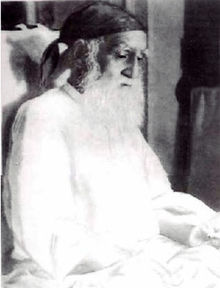Related Research Articles
Metaphysics is the branch of philosophy that studies the fundamental nature of reality. This includes the first principles of: being or existence, identity, change, space and time, cause and effect, necessity, actuality, and possibility.

Monism attributes oneness or singleness to a concept, such as to existence. Various kinds of monism can be distinguished:

In monotheistic theology, the doctrine of Divine Simplicity says that God is simple.

Tawhid is the indivisible unification concept of monotheism in Islam. Tawhid is the religion's central and single most important concept, upon which a Muslim's entire religious adherence rests. It unequivocally holds that God in Islam is one and single.

Fakir, faqeer, or faqīr, derived from faqr, is an Islamic term traditionally used for Sufi Muslim ascetics who renounce their worldly possessions and dedicate their lives to the worship of God. They do not necessarily renounce all relationships, or take vows of poverty, but the adornments of the temporal worldly life are kept in perspective. The connotations of poverty associated with the term relate to their spiritual neediness, not necessarily their physical neediness.

Aḥmad al-Fārūqī al-Sirhindī, also known as Imam Rabbani and Mujadid Alf-e-Sani, was an Indian Islamic scholar, Hanafi jurist, and member of the Naqshbandī Sufi order. He has been described by some followers as a Mujaddid, meaning a “reviver", for his work in rejuvenating Islam and opposing Din-i Ilahi and other policies of Mughal emperor Akbar. While early South Asian scholarship credited him for contributing to conservative trends in Indian Islam, more recent works, notably by ter Haar, Friedman, and Buehler, have pointed to Sirhindi's significant contributions to Sufi epistemology and practices.

Sufi cosmology is a Sufi approach to cosmology which discusses the creation of man and the universe, which according to mystics are the fundamental grounds upon which Islamic religious universe is based. According to Sufi cosmology, God's reason for the creation of this cosmos and humankind is the "manifestation" and "recognition" of Himself as it is stated in Hadith Qudsi – "I was a hidden Treasure; I desired to be recognized so I created the creature".

Sufi philosophy includes the schools of thought unique to Sufism, the mystical tradition within Islam, also termed as Tasawwuf or Faqr according to its adherents. Sufism and its philosophical tradition may be associated with both Sunni and Shia branches of Islam. It has been suggested that Sufi thought emerged from the Middle East in the eighth century CE, but adherents are now found around the world.

In Islamic philosophy, Sufi metaphysics is centered on the concept of وحدة, waḥdah, 'unity' or توحيد, tawhid. Two main Sufi philosophies prevail on this topic. Waḥdat al-wujūd literally means "the Unity of Existence" or "the Unity of Being." Wujūd, meaning "existence" or "presence", here refers to God. On the other hand, waḥdat ash-shuhūd, meaning "Apparentism" or "Monotheism of Witness", holds that God and his creation are entirely separate.
Ahmad Hilmi of Filibe (1865–1914) was a Sufi Turkish language writer and thinker. In Turkish he is usually called Şehbenderzâde Filibeli Ahmed Hilmi. Being a Sufi, his thoughts were influenced by the Sufi thought, more specifically the wahdat al-wujud, greatly. He also supported the anti-materialistic way of thinking and was a great rival to his materialist contemporary writer and thinkers.

Bayrami, Bayramiye, Bayramiyya, Bayramiyye, and Bayramilik refer to a Turkish Sufi order (tariqah) founded by Hajji Bayram (Hacı Bayram-ı Veli) in Ankara around the year 1400 as a combination of Khalwatī, Naqshbandī, and Akbarī Sufi orders. The order spread to the then Ottoman capital Istanbul where there were several tekkes and into the Balkans. The order also spread into Egypt where a tekke was found in the capital, Cairo.

Pir Syed Meher Ali Shah Hanfi Qadri Chisti ؓ, was a Sufi, a great scholar and a mystic Punjabi poet from Punjab, British India belonging to the Chishti order. He is known as a Hanafi scholar who led the anti-Ahmadiyya movement. He wrote several books, most notably Saif e Chishtiyai, a polemical work criticizing the Ahmadiyya movement of Mirza Ghulam Ahmad.
Metaphysics is the branch of philosophy that investigates principles of reality transcending those of any particular science. Cosmology and ontology are traditional branches of metaphysics. It is concerned with explaining the fundamental nature of being and the world. Someone who studies metaphysics can be called either a "metaphysician" or a "metaphysicist".

Hezb-e Wahdat-e Islami Afghanistan, shortened to Hezbe Wahdat, is an Afghan political party founded in 1989. Like most contemporary major political parties in Afghanistan, Hezb-e Wahdat is rooted in the turbulent period of the anti-Soviet resistance movements in Afghanistan in the 1980s. It was formed to bring together nine separate and mostly inimical military and ideological groups into a single entity.
Abdullah Bosnevi (1584–1644) was a Bosnian Malamati Sufi and poet who lived in the Ottoman period.

Akbari Sufism or Akbarism is a branch of Sufi metaphysics based on the teachings of Ibn Arabi, an Andalusian Sufi who was a gnostic and philosopher. The word is derived from Ibn Arabi's nickname, "Shaykh al-Akbar," meaning "the greatest master." 'Akbariyya' or 'Akbaris' have never been used to indicate a specific Sufi group or society. It is now used to refer to all historical or contemporary Sufi metaphysicians and Sufis influenced by Ibn Arabi's doctrine of Wahdat al-Wujud. It is not to be confused with Al Akbariyya, a secret Sufi society founded by Swedish Sufi 'Abdu l-Hadi Aguéli.

Khawaja Muhammad Zaman of Luari was a sufi saint and poet from Sindh. His father, Shaikh Abdul Latif Siddiqi, was a descendant of first Rashidun Caliph Abu Bakr. Their forefathers had moved to Sindh in Abbasid era.

Shaykh Muhibullah Allahabadi, or Muhibb ullah Ilahabadi was a Sufi scholar who was active in Allahabad in northern India during the reign of the Mughul emperor Shah Jahan. He is noted as a leading proponent of the Sufi doctrine of Wahdat al-Wujud, sometimes called "Oneness of Being". Some Sufis consider that he was a saint.

Peer Syed Ghulam Mohiyuddin Gilani, commonly called Babuji, was a Sufi scholar from Golra Sharif, Pakistan belonging to the Chishti order. He was the son of Peer Meher Ali Shah and remained the sajjada nashin of the Golra Sharif shrine from 1937 to 1974.
References
- ↑ Baba, Meher (1997). God Speaks: The Theme of Creation and Its Purpose . Oakland, California: Sufism Reoriented. pp. 262–263. ISBN 978-0915828029.